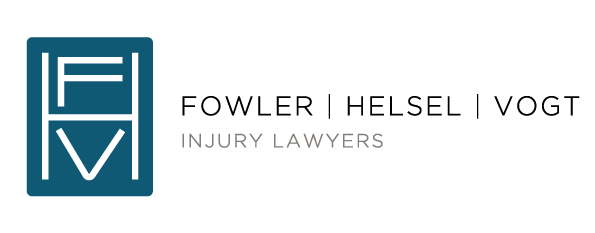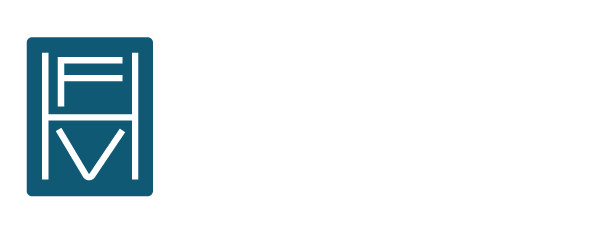In many personal injury cases, the victim will file an injury claim with the insurance company in order to obtain enough compensation to pay for the total cost of their medical bills. This includes compensation for ambulance trips and hospital stays, which can add up in the blink of an eye.
In fact, the Centers for Disease Control (CDC) reports that, on average, each crash-related ED visit costs about $3,300 and each hospitalization costs about $57,000 over a person’s lifetime. This doesn’t even take into consideration the cost of ongoing medical treatment, such as:
Medical specialists
Required surgeries
Medical rehabilitation and physical therapy
Depending on how long the injury takes to heal, this person will most likely need to be compensated for past, present, and future lost wages. This allows them and their family to live the life they did if the injury did not occur at all and the person was still able to work and financially provide for the household.
The compensation this person receives helps them physically recover, and after a certain period of time, the individual can move forward fully healed.
In our experience working with those seriously injured, however, this is a best-case scenario for some accident victims. Some accidents cause injuries that are so severe and traumatic that they can have lifelong impacts on an individual’s life forever.
Below, we discuss how injuries that don’t quite fully heal may impact a personal injury settlement.
Lifelong Disability vs. Short-Term Injuries
Just as no two accidents are the same, no two resulting injuries will be the exact same. Some injuries are short-term and heal with time while others have lifelong effects.
Some examples of short-term injuries include:
Cuts and bruises
Broken bones
Sprains
Whiplash
More often than not, these injuries won’t cause any long-term complications or deficits and individuals can return to their normal lives once they have physically healed. However, they still may require ongoing medical care or physical therapy, at least for a certain period of time.
Claims can become much more complex they have to do with permanent injuries. Essentially, these injuries are ones that cannot be completely healed overtime. While short-term injuries can be healed and the person can be made “whole” again, permanent injuries or ones that cause lifelong impairment can impact an individual’s life forever.
Common Types of Lifelong Disabilities
Lifelong disabilities, usually due to what are known as catastrophic injuries, come in many different forms. Here are some of the most common ones:
Paralysis
Spinal cord injuries are one of the most common means of lifelong disabilities. This is because a majority of spinal cord injuries will cause paralysis in the accident victim. Paralysis can be not only devastating to the injury victim but also cost much more over the course of the individual’s life.
These conditions often lead to additional, lifelong bills in the form of the following costs:
Wheelchairs
Rehabilitation
Physical therapy
Personal daily assistants, such a nursing assistants
Traumatic Brain Injuries
Traumatic brain injuries, otherwise known as TBIs, are some of the most severe injuries that the human body can withstand. Individuals who sustain minor TBIs can usually heal after months of medical treatment and rehabilitation.
Unfortunately, those who sustain moderate to severe TBIs may not be so lucky. Oftentimes, these injuries cause lifelong disabilities as well as cognitive and motor deficits, such as:
Spasticity (muscle stiffness)
Difficulty carrying or moving items
Speech problems
Loss of vision
Difficulty thinking and remembering
Difficulty developing close relationships
Severe Fractures
While many broken bones heal with proper care, some fractures are so severe that they may leave never quite heal. These are most commonly associated with:
Comminuted fractures. These occur when the bone is shattered into many different pieces.
Comminuted fractures. These occur when part of the bone has been twisted.
Open fractures. These occur when the bone sticks out of the skin.
Severe fractures may cause long-term pain for the individual as well as lifelong impairment, such as causing an individual to walk with a permanent limp.
Organ Damage
Extreme impacts can lead to internal organ damage and internal bleeding. These injuries may leave organs in a more sensitive state and individuals may have to deal with possible organ failure. For instance, a traumatic event could result in the loss of a kidney, meaning that the individual has to ensure they take proper steps throughout the remainder of their life to stay healthy with one kidney.
What a Lifelong Disability Means For Your Personal Injury Lawsuit
Those who sustain lifelong disabilities may be entitled to exponentially more compensation for their injuries. On top of costs for medical bills and lost wages, these individuals and their families may also receive extra compensation for the following damages:
Lost Earning Capacity
The injured person may have been the breadwinner for the household and made a decent salary in order to adequately provide for their entire family. When a person sustains a lifelong disability, they may be unable to perform this duty anymore.
Award amounts for lost earning capacity will vary depending on a few different factors, including:
The type of job that the person had at the time of the accident
The potential for job growth or a shift in jobs
The severity of the lifelong disability
The age of the injury
How greatly the family relied upon this individual’s income for financial support
For example, a young individual who (1) sustained an injury that led to quadriplegia, (2) provided fully for their family, and (3) drove a commercial truck as a full-time career may receive high damage award amounts in order to fully make up for their losses.
Loss of Consortium
If an injury causes a lifelong disability, such as paralysis, the individual and their spouse may be able to seek damages for something known as “loss of consortium.” This is considered a loss of companionship, moral support and/or intimacy.
Lost Quality of Life
Depending on the type of lifelong disability, a person may not be able to do the things that they did prior to the accident, such as walk their job or play with their kids. In situations like this, this individual may be entitled to compensation for diminished quality of life related to their inability to participate in activities they enjoyed prior to the accident.
Difference Between Lifelong & Permanent Disability
When you receive permanent disability benefits, you might be surprised to find that you will not necessarily receive those benefits checks your entire life. Eventually, most permanent disability benefits will come to an end. If you have a “lifelong” disability, though, you could earn a lifetime pension that will provide some financial aid for the rest of your life.
Get Dedicated Legal Advocates on Your Side
Catastrophic injuries and the lifelong disabilities they cause can impact individuals for the remainder of their lives. Such a person may be made to relive their experience every day, and their injuries may serve as a constant reminder of the trauma that they endured. On the other hand, they may also serve as a daily reminder of the battle they endured in order to continue living and moving forward.
If you or a loved one sustained a catastrophic injury as a result of an accident caused by another, you need legal representation immediately. These types of cases can be quite complex and require the assistance of a catastrophic injury attorney with experience handling similar cases.
The attorneys at Fowler Helsel Vogt come backed by over 40 years of experience advocating on behalf of injury victims. We understand that this is probably an extremely difficult time for you and your family. We’re determined to ease your worry during this time by reviewing each and every detail of your case and fighting hard for your full financial recovery. This way, you can focus on rebuilding your life.
We are here to put you first. Contact Fower Helsel Vogt at (559) 900-1280 to schedule your free and confidential consultation.


